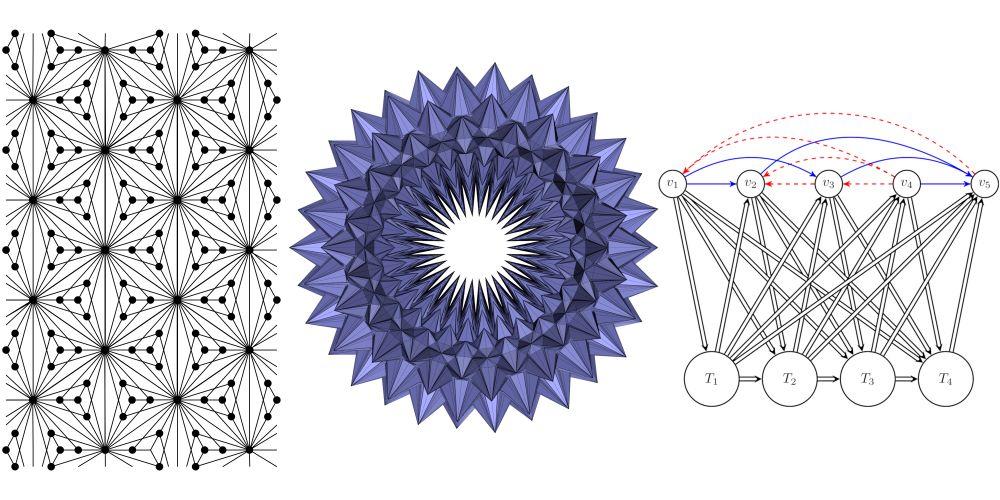
- computer science,
- scheduling of large-scale production,
- management of military operations (see the origins of the name operations research)
- economy
- ...
A large number of branches have later appeared, and those we study can be called Combinatorial Optimization.
Combinatorial Optimization consists in finding the best solution among a finite (but typically very large) number of choices. It is a branch of Mathematical Programming, which covers all methods used to determine the optimium of a function under various constraints. The purpose is to minimize a function over a finite, but usually very large set, whose mathematical properties are not easy to characterize. Investigating such characterizations, and the optimization algorithms using them, is the base of the work of our team. We use our expertise in this domain to investigate new problems (purely theoretical ones or some having industrial applications), to analyze them and extract fundamental properties that could be used to solve them or show that their resolution is hard. We develop theoretical tools enabling us to solve a wide variety of problems with adequate methods (exact, heuristics, approximation algorithms, ...) that can be generic or tailor-made.
These results and the related activities - seminars, international projects, lectures and teaching, exchange programs for young researchers - make Grenoble an attractive center in this field and more generally in Discrete Mathematics.



